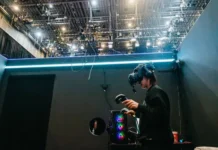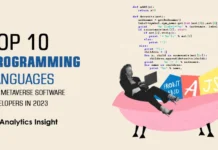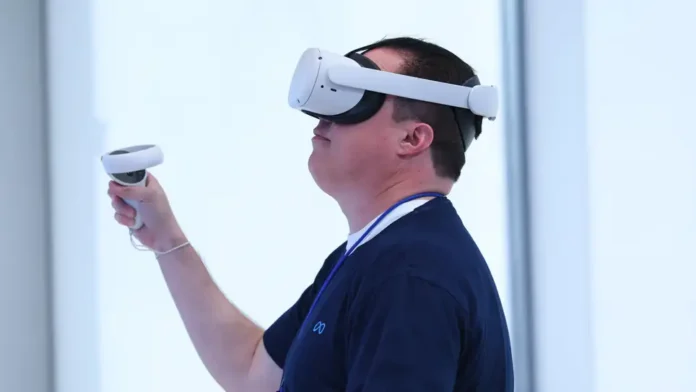CTO Andrew Bosworth said about 20% of the company’s overall costs and expenses would be spent on the Reality Labs segment of its business next year.
Much has changed since Mark Zuckerberg last year boldly proclaimed the company once known as Facebook would charge the world headfirst into the so-called metaverse. A historic tech downturn grabbed hold of Meta and left it with 11,000 fewer employees and a stock price down a whopping 65%. Meta reportedly burned over $10 billion dollars into its metaverse vision during that time with little to show for it save avatars with legs that barely work and a $1,500 headset with no real use case. John Carmack, the legendary engineer who lent his ear to Meta, recently even called it quits. Now, with the end of 2022 in sight, the company says it plans to burn even more money heading into the new year.
In a blog post titled, “Why we still believe in the future,” Meta Chief Technology Officer Andrew Bosworth acknowledged the financial headwinds but said the company would nonetheless still commit to dump around 20% of the company’s overall costs and expenses into the Reality Labs segment of its business next year. That single division, which is responsible for Meta’s VR headsets and future facing metaverse platforms, reported $9.44 billion in losses this year according to Insider Intelligence.
“We never thought it would be easy or straightforward, but this year was even harder than we expected,” Bosworth admitted. “Economic challenges across the world, combined with pressures on Meta’s core business, created a perfect storm of skepticism about the investments we’re making.”
Bosworth went on to argue against ”short-term thinking” which he said would limit companies only to invest in large, expensive products during boom times. Though the executive said Meta had made some adjustments, he said overall metaverse plans aren’t going anywhere.
“I can say with confidence that after one of the hardest years in the history of the company, Meta remains as committed to our vision for the future as we were on the day we announced it,” Bosworth added.
Though 2022 might seem akin to a failure from the outside, Bosworth said he believed Reality Labs engineers succeeded in developing a product, The Meta Quest Pro, that put a piece of advanced hardware in the hands of developers. Additionally, Bosworth pointed to the growing popularity of social experiences on the Quest Store as evidence VR users are actually interested in hanging on with headsets on. Moving forward the executive said Meta wants to spend more time focusing on ways to help Horizon Worlds developers succeed in 2023. Bosworth hinted at growing competition in coming years, all but naming Apple and its long-rumored headset.
“While we will continue to find ways to work more efficiently, what won’t change in 2023 is our vision and the long-term research effort we’re undertaking to get there,” Bosworth added.
That reassuring tone, while likely welcome support for Meta engineers, flies in the face of a growing chorus of frustrated investors and external critics. One of those investors, Altimeter Capital founder Brad Gerstner wrote a scathing open letter to Zuckerberg earlier this year saying Meta had, “drifted into the land of excess.”
Previously enthusiastic starts are also leaving the company. This week, Doom co-creator and programming legend John Carmack resigned from his consulting position at Meta. In a memo, Carmack said he supported the company’s hardware but said the teams working on that hardware, “constantly self-sabotage[s] and squander[s] effort.”
“There is no way to sugar coat this; I think our organization is operating at half the effectiveness that would make me happy,” Carmack said.
























































